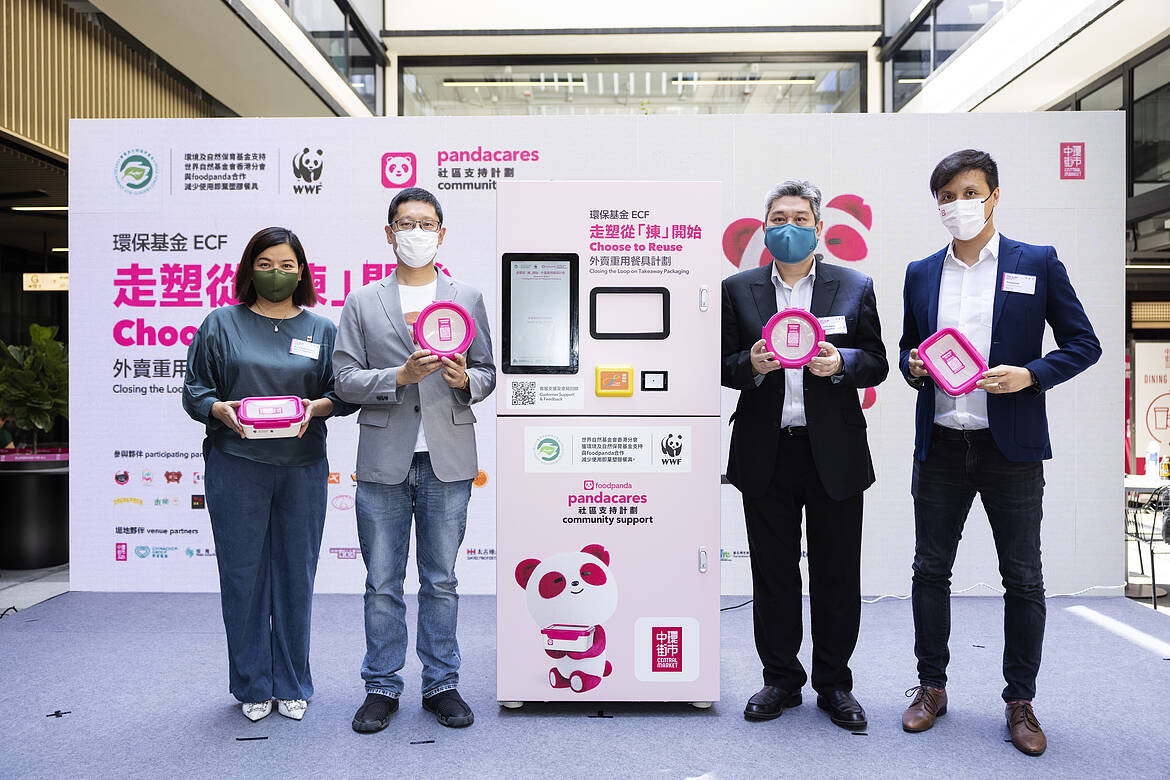The WWF is run at a local level by the following offices...
- WWF Global
- Adria
- Argentina
- Armenia
- AsiaPacific
- Australia
- Austria
- Azerbaijan
- Belgium
- Bhutan
- Bolivia
- Borneo
- Brazil
- Bulgaria
- Cambodia
- Cameroon
- Canada
- Caucasus
- Central African Republic
- Central America
- Chile
- China
- Colombia
- Croatia
- Democratic Republic of the Congo
- Denmark
- Ecuador
- European Policy Office
- Finland

Hong Kong’s Plastic Shopping Bag Charging Scheme was implemented in 2015. The scheme involves paying a minimum charge of HK$1 for each plastic shopping bag, which is collected from the general public by all retailers in Hong Kong. While this scheme has seen some success, there is still a great deal of plastic bag waste produced in Hong Kong.
To mitigate the harmful impacts of this waste, WWF-Hong Kong has been partnering with local retailers to donate the proceeds from the levy to our marine conservation work. WWF-Hong Kong is also supporting decisive action to reduce unnecessary single-use plastics, such as increasing the levy and banning single-use tableware.

These corporate champions are boosting their corporate social responsibility credentials by supporting WWF-Hong Kong to knock plastic out of our seas:
Join the programme


Food deliveries and takeaways are now seen as essential services. While they have helped Hongkongers through tough times like the pandemic, the massive surge in food packaging that comes with these conveniences has exacerbated our city’s long-term single-use plastic waste problem. A total of 82,125 tonnes of plastic tableware was sent to landfills in 2021, overburdening the city’s already-stretched waste infrastructure.
To address this crisis, WWF-Hong Kong and foodpanda worked together to launch the first-ever closed-loop reusable food packaging programme in Hong Kong, with the support of the Environment and Conservation Fund (ECF). Called “ECF: Choose to Reuse”, the programme offers a more sustainable option for takeaway and delivery services that encourages the public and our restaurant partners to reduce waste at the source through reusable containers.
The pilot programme was launched in early October 2022. foodpanda provides reusable containers in two different shapes and sizes to the participating restaurants, allowing them to offer a variety of dishes. Customers browse the foodpanda platform, order food from participating restaurants for delivery or pick-up as usual, then select the reusable container option and return the empty containers to a collection point.
Customers then retrieve the deposit they paid via Octopus and, for every container returned, receive a foodpanda e-voucher for their next order. Users also earn credits on the Carbon Wallet App for every returned container as a reward for participating. To ensure hygiene standards are maintained, foodpanda uses an airline caterer, gategroup Solutions, as their cleaning partner. The cleaning process strictly follows the Hazard Analysis Critical Control Point programme, which meets global hygiene and safety standards.
WWF-Hong Kong and foodpanda continuously review the programme and are expanding the network based on its success. The hope is that this project will provide more environmentally-friendly dining options for society, showcase how collaboration across sectors can foster long-term change in daily habits, and create positive impacts for nature.




